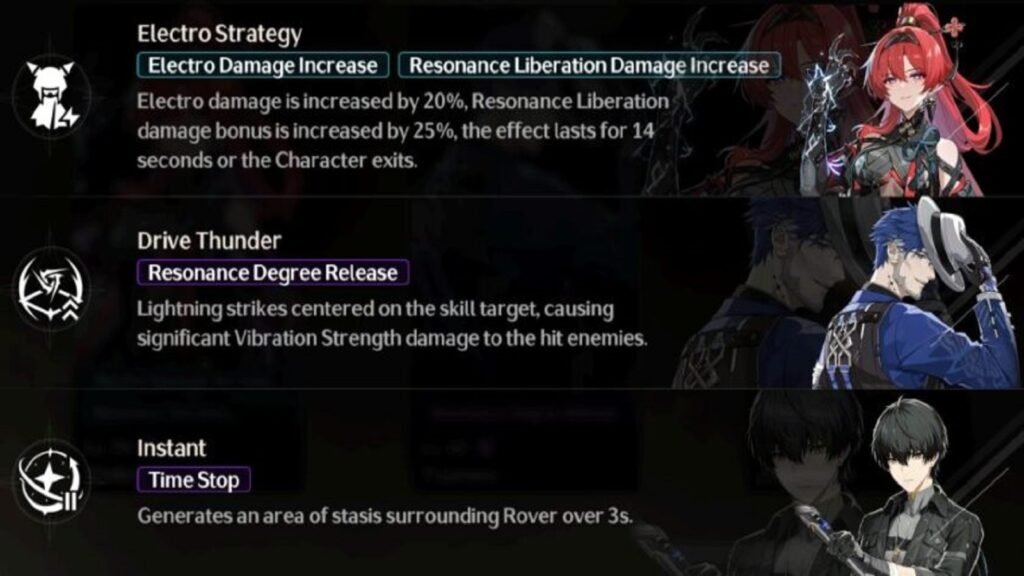Wuthering Waves features 17 characters called Resonators, and feature a unique skill and an ultimate, and these are called Resonance Skills and Resonance Liberation, respectively.
However, the Resonance Skill and Liberation are not the only things that make each Resonator unique. They also possess a distinct Resonance Circuit, a crucial element in the execution of their skills.
Mastering this aspect can significantly boost your in-game combat skills.
What are Resonance Skills in Wuthering Waves?
Like in most RPG titles, every playable Resonator in Wuthering Waves features a unique ability that can be used during combat, and this ability is known as the Resonance Skill. Every character’s unique Resonance Skill sets up their role in a party based on what their ability does.
Mastering the execution of your character’s Resonance Skill is not just a skill, it’s a strategic advantage in combat.
Properly executing this skill will not only enhance your character’s performance but also allow them to accumulate Resonance Energy, a vital resource for unleashing your character’s ultimate, also known as Resonance Liberation.

Needless to say, Resonance Skills are a very important part of the combat mechanics in Wuthering Waves and are definitely worth spending some time to master. Having said that, you must also note that every character has their own individual ability and ultimate, making it possible for you to execute them in synergy.
Furthermore, there are two more skills that play a crucial role in combat-the Intro skill and the Outro skill. As their names suggest, these skills come into play when you swap between characters in the midst of a battle.
The incoming character performs the Intro skill, while the outgoing Resonator activates the Outro skill, adding a layer of tactical depth to your gameplay.
However, you need to remember that the Outro skill is extremely important when setting up your three-Resonator party. These skills usually tend to grant direct or elemental buffs to the character getting swapped in.
